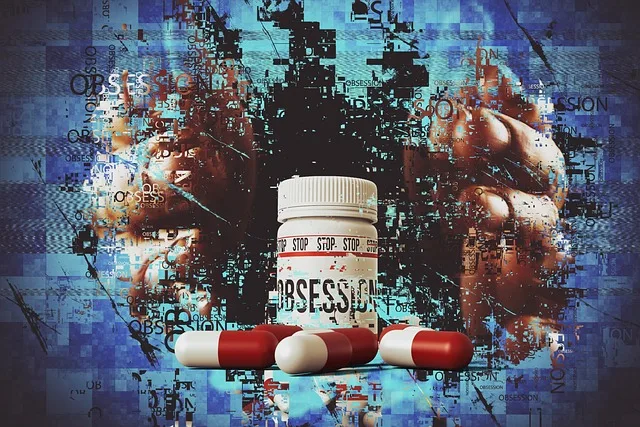Breaking the Addiction Cycle: Tips for Overcoming Dependency

In a world where temptations abound and stressors are inevitable, many individuals find themselves ensnared in the intricate web of addiction. Breaking free from this cycle demands not only personal resilience but also a strategic approach that addresses the multifaceted aspects of dependency. In this guide, we will explore effective tips for overcoming addiction, shedding light on the complexities of the journey toward recovery.
The Anatomy of Addiction: Unraveling the Layers
The intricate web of addiction goes beyond the mere physical dependence on substances; it involves a complex interplay of psychological, emotional, and social factors. Unraveling the layers of addiction requires a deep dive into the individual’s life, often revealing unresolved traumas, untreated mental health issues, or external pressures that became catalysts for dependency. Understanding the anatomy of addiction involves acknowledging these root causes as the initial step toward breaking free. It’s a process of self-discovery where individuals confront the multifaceted nature of their struggles, paving the way for a targeted and effective approach to recovery. Recognizing that addiction is not a singular entity but a tapestry woven from various threads of experience is essential in crafting personalized strategies that address the diverse aspects of this intricate challenge.
Professional Guidance: The Role of Therapists and Counselors
Professional guidance from therapists and counselors plays a pivotal role in the intricate tapestry of overcoming addiction. These dedicated professionals serve as compassionate navigators through the often tumultuous waters of recovery. Through tailored therapeutic approaches, individuals are empowered to confront the underlying causes of their addiction, whether rooted in unresolved trauma, mental health struggles, or external pressures. Therapists and counselors provide a safe space for self-exploration, helping individuals develop coping mechanisms and resilience. Their expertise extends beyond merely addressing the symptoms of addiction, delving into the psychological and emotional realms that contribute to the cycle of dependency. In essence, these professionals become pillars of support, guiding individuals toward a profound understanding of themselves and the tools needed to build a foundation for lasting recovery.
Rehabilitation Centers: A Haven for Recovery
For many, drug rehabilitation becomes a crucial turning point. These drug rehabilitation centers provide a structured environment where individuals can focus solely on their recovery. Comprehensive programs encompass detoxification, counseling, group therapy, and skill-building workshops. Also, rehabilitation refers to a spectrum of evidence-based practices designed to address the physical and psychological facets of addiction, offering a holistic approach toward sustainable recovery.
Holistic Healing: Nourishing the Mind, Body, and Soul
Holistic healing is a comprehensive approach that recognizes the interconnectedness of the mind, body, and soul in achieving overall well-being. It goes beyond merely addressing symptoms and delves into the root causes of ailments, aiming to create a harmonious balance. Nourishing the mind involves practices like mindfulness meditation and cognitive therapies that promote mental clarity and emotional resilience. Caring for the body includes adopting a balanced diet, regular exercise, and alternative therapies such as acupuncture or massage. The soul, often neglected in conventional approaches, finds solace through activities that bring joy, purpose, and spiritual connection. Holistic healing acknowledges the intricate dance between these three facets, understanding that true health emerges when the mind is at peace, the body is vitalized, and the soul is nurtured.
Building a Support System: The Power of Connection
Isolation often fuels addiction, making the establishment of a robust support system paramount. Family, friends, and support groups provide understanding, encouragement, and accountability. Sharing the journey with others who have faced similar struggles fosters a sense of belonging and reinforces the belief that recovery is not a solitary endeavor. The power of connection is a formidable force in breaking the chains of addiction.
Resilience in Relapse: Learning from Setbacks
Relapses are part of many recovery journeys, and viewing them as opportunities for learning rather than failure is crucial. Understanding the triggers that lead to relapse and developing coping mechanisms to navigate these challenges strengthens one’s resilience. The road to recovery is seldom linear, but each setback can be a stepping stone toward a more profound understanding of oneself and the journey to sobriety.
Embracing Change: Creating a Life Beyond Addiction
Breaking the addiction cycle involves a fundamental shift in lifestyle and mindset. Embracing change means letting go of old habits, toxic relationships, and environments that foster dependency. It’s about rediscovering passions, setting goals, and envisioning a future beyond the limitations of addiction.
Overcoming addiction is a courageous journey that demands self-reflection, resilience, and a multifaceted approach to healing. From understanding the roots of dependency to seeking professional guidance, embracing holistic healing, and building a robust support system, the path to recovery is as unique as the individuals walking it. In breaking the addiction cycle, one not only reclaims their life but discovers the strength within to face any challenges that lie ahead.






